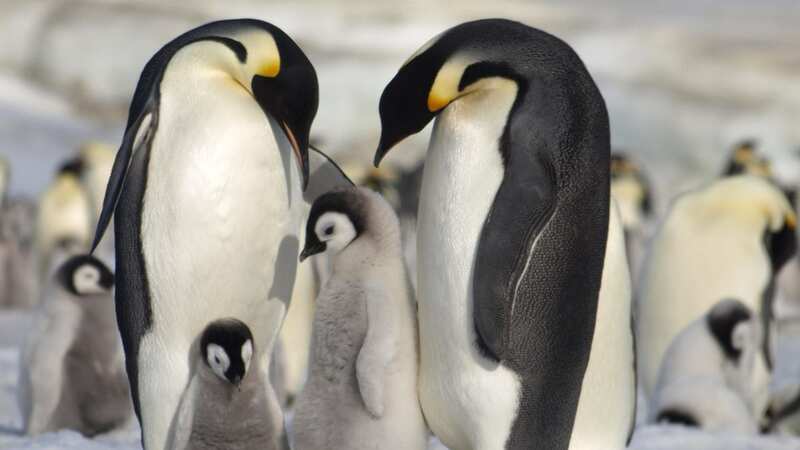Fears penguins may die out completely after no chicks survive due to melting ice

Melting Antarctic sea ice caused by global warming saw thousands of baby emperor penguins die last year, researchers have said.
Not a single chick survived in four out of five emperor penguin colonies studied in the Bellingshausen Sea, west of the Antarctic Peninsula last year.
A study published in the journal Communications Earth & Environment, said melting sea ice was responsible for the catastrophic event. Satellite images showed that by December, the middle of summer in the Southern Hemisphere, there was no sea ice left at all.
Penguins lay their eggs on the frozen ocean and walk to the edge of the water to feed, but the fluffy chicks don’t develop waterproof feathers until late December or January. But this year by December the sea ice had melted by then in four of the five breeding colonies researches studied in the area, resulting in the death of all chicks, researchers said.
"If the sea ice breaks up under them, the young chicks will drown or freeze to death," said Peter Fretwell, a researcher at the British Antarctic Survey and co-author of the study published Thursday. The record low ice levels around Antarctica may become the norm, researchers warn, with climate change making such massive losses to animal populations more frequent in the future.
 Protesters planned to kidnap King Charles waxwork and hold it hostage
Protesters planned to kidnap King Charles waxwork and hold it hostage
Fretwell's team has also completed a preliminary analysis of known nesting sites - visible in satellite photos because of colored guano, or poo stains, left on white ice - across Antarctica, the only continent where the emperor penguin lives. There are about 300,000 breeding pairs left of the world's largest penguins. Of 62 known penguin colonies, around 30% were harmed by low sea-ice levels last year - and 13 likely failed entirely, Fretwell said.
"That this could happen doesn't shock me, but I'm shocked that it has happened already. I thought it would be further down the line," said Daniel Zitterbart, a researcher who studies Antarctica for the Woods Hole Oceanographic Institution, but was not involved in the new paper.
If penguins aren't successful breeding in one location, they may look for another site the next year, he said. While it's possible for the population to recover from one or two bad breeding years, he's worried about the future. "If you look further out down the line, how many suitable places will be left?" he asked.
Read more similar news:
Comments:
comments powered by Disqus

































